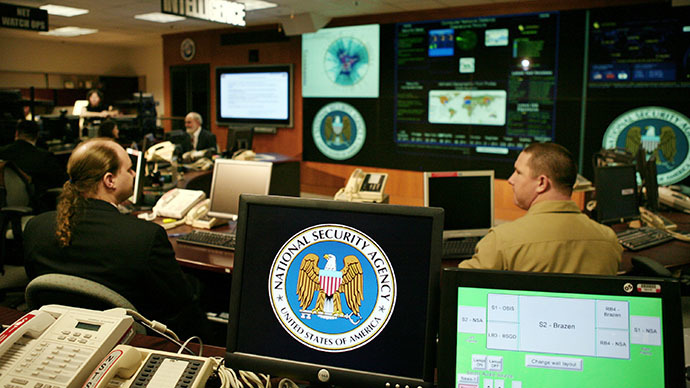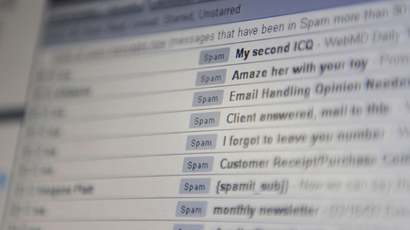NSA has 'extremely good idea' of how Snowden stole documents

It’s likely too late to stop Edward Snowden from leaking more classified documents, but the National Security Agency’s top technologist says the NSA is almost certain of how the former intelligence contractor accessed a trove of sensitive data.
Speaking to National Public Radio on Wednesday, NSA’s chief technology officer said that Snowden likely copied over classified documents from the agency’s internal website where data was kept for analysts to be able to view and discuss them.
"We have an extremely good idea of exactly what data he got access to and how exactly he got access to it," the NSA's Lonny Anderson told NPR.
Snowden, 30, has taken credit for supplying journalists at the Guardian, Washington Post and other outlets with a cache of national security documents detailing the vast surveillance apparatus operated by the United States government. He is wanted for espionage in the US but has been granted temporary asylum from Russia.
Copycats beware, though — Anderson added to NPR that updates within NSA in the months since Snowden began sharing classified documents with the media will likely prevent any other leakers from getting away with doing something similar. During Snowden’s time as a government contractor employed first by Dell, then Booz Allen Hamilton, analysts in his place could have possibly used their own electronic devices, like USB drives, to copy data and bring it outside of the office.
"One thing we have done post-media leaks," Anderson told NPR, "is lock those down hard, so those are [now] all in two-person control areas."
As an extra precaution, Anderson added that the NSA is implementing new systematic tools to keep an eye on every analyst with access to sensitive information.
"We're going to remove anonymity from our network," Anderson said. "If you've got privileged access to our network, like a systems administrator [has], if you're being given a privilege that very few people have, you're not going to do anything alone."
Additionally, Anderson said changes to the NSA’s internal website have been made in an effort to again make sure even someone with authorized access can’t abuse the system.
"Someone today could [still] get access to that intranet [location]," Anderson said, "because it still exists. Could someone today do what [Snowden] did? No."
Weighing in with NPR, one government official speaking on condition of anonymity suggested that Snowden’s sensitive compartmented information clearance and his role as a systems administrator provided an idea situation for someone to access the NSA’s intranet and leak information.
"Unfortunately for us," one official told NPR, "if you had a top secret SCI clearance, you got access to that."
"It's kind of brilliant, if you're him," another official said. "His job was to do what he did. He wasn't a ghost. He wasn't that clever. He did his job. He was observed [moving documents], but it was his job."
The New York Times reported after Snowden’s first leaks were published that the former contractor supplied journalists with upwards of 50,000 sensitive documents. Glenn Greenwald, the Guardian journalist who first broke news of the NSA leaks, said he thought at least “dozens” of those documents are newsworthy.














